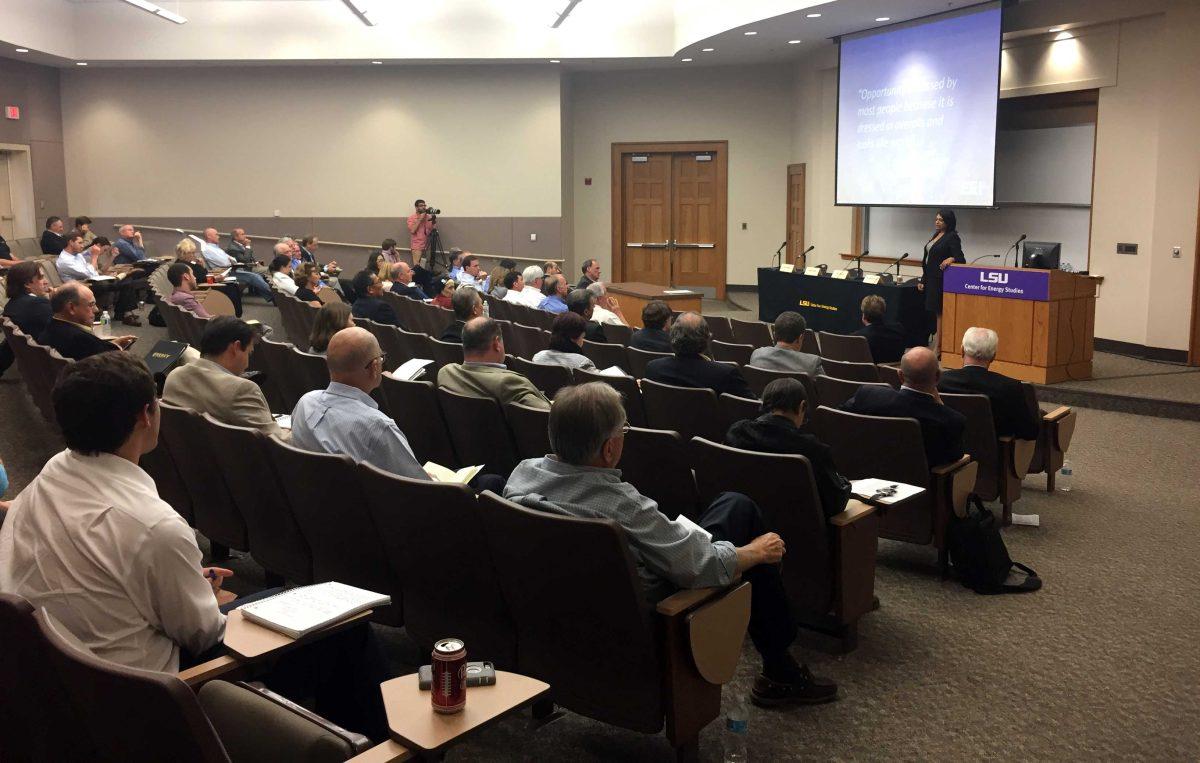Jim Krane, Wallace S. Wilson Fellow in Energy Studies at Rice University’s Baker Institute for Public Policy, veered global at the opening of the 2016 Energy Summit at LSU’s Center for Energy studies for a perspective on risks.
He warned industry representatives at the conference that they will face increasingly complex challengers in the future.
Krane’s research addresses geopolitical aspects of energy with a focus on the Middle East. His scholarly work explores energy-exporting states and their problems with demands, subsidies and the risks they face from climate action.
His presentation, one of several in an afternoon agenda at the LSU Center for Energy Studies, introduced four types of risks that could affect the fossil fuel industry: policy, demand, divestment and competition risk.
Krane’s key point: The burning of fossil fuels is responsible for two thirds of the human greenhouse gas emissions behind climate change. Those same fuels are the financial underpinnings for the resource-rich countries.
Effective climate action, if it were to happen, is going to make life increasingly difficult for the fossil fuel business going forward, he underscored.
Policy risks include governmental regulation policies and pledges governments make to reduce carbon emissions or to support competing technology.
“This potentially is the strongest form of risk. Governments have the tools to take policies that they choose or that their electorates want, right up to and including banning fossil fuels.”
Krane’s “demand” risk detailed the decline in the appetite for fossil fuel due to climate change.
“Coal is the one that is most at risk,” Krane said. “Global coal demand fell by 22 percent.”
The demand for coal may have already peaked, Krane said, while adding that natural gas is “the bridge” to decarbonization as a coal substitute, noting that China’s use which consumes half of the world’s coal, has declined within the last two years.
Krane points to gas as a “fantastic” substitute for coal. “It’s already replaced coal as the number one source of power generation in the U.S. this year,” he said.
Krane says his research concludes that gas is expected to surpass coal as a global power generator by 2030.
That said, Krane concluded, the biggest risk of all is that these climate actions may fail.
Session at LSU Energy Summit warns energy representatives about complex future challenges
October 27, 2016
Attendees at the 2016 Energy Summit in the Dalton J. Woods Auditorium of LSU’s College of the Coast and Environment listen to presentations.
More to Discover











